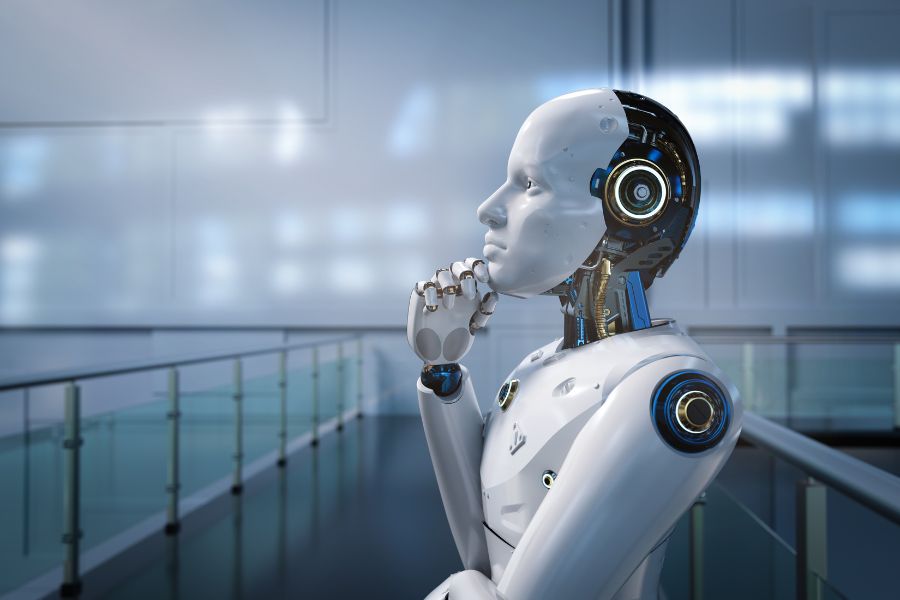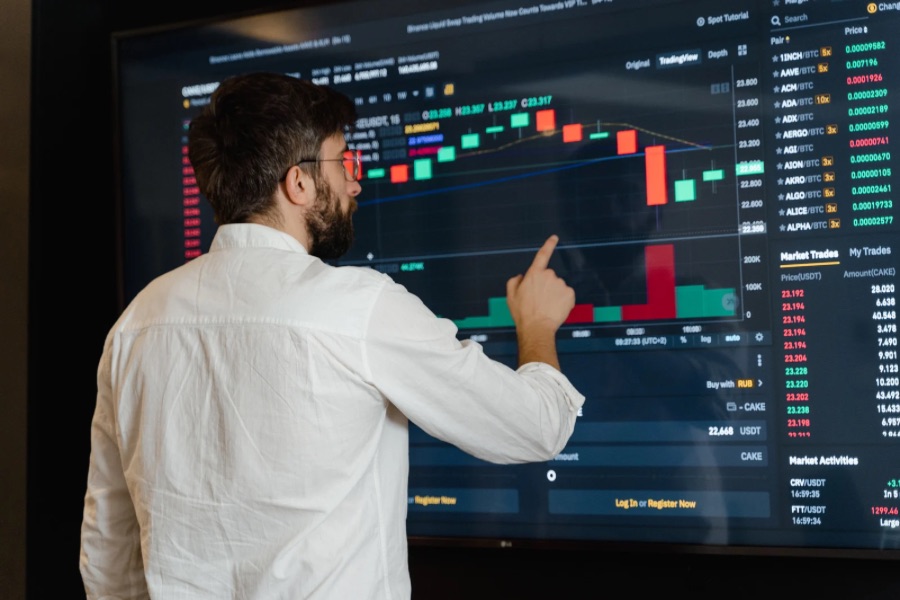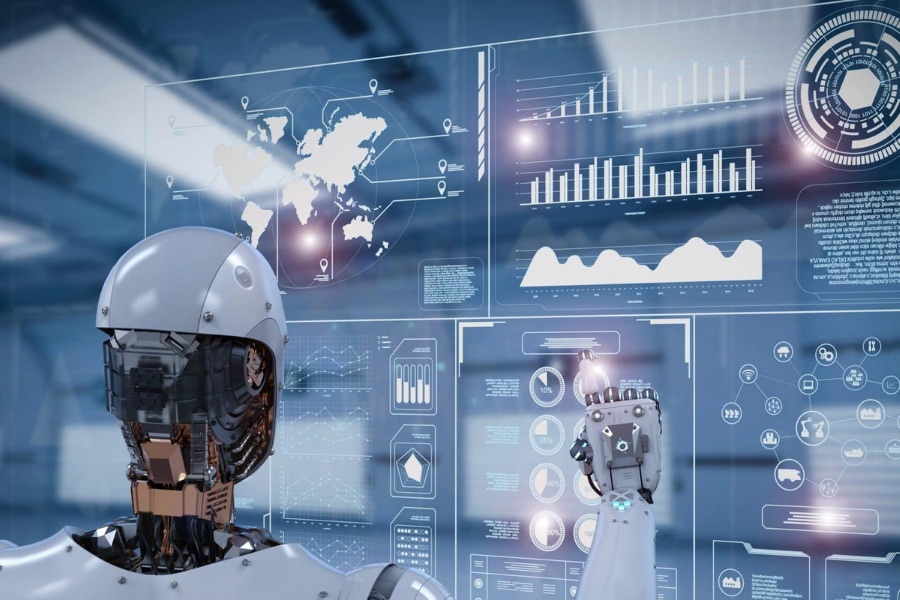Is AI Going to Takeover Cyber Security in the Near Future?
July 4, 2024, 5 min read
This has been one of the most talked-about issues recently, so we’d like to weigh in. Due to the rapid development of Artificial Intelligence (AI) in various fields, various sectors are undergoing significant changes.
In the near future, cybersecurity, aimed at protecting critical systems and sensitive data from digital threats, is projected to undergo substantial changes.
AI’s influence on the job market for cybersecurity professionals is twofold. It may automate certain aspects of the industry while creating new career opportunities for those well-versed in AI applications in cybersecurity.
We encourage you to take proactive steps to position yourself favorably in this evolving landscape.
In the years to come, AI may affect the job market for cybersecurity professionals in the following ways.
Understanding the Role of AI in CyberSecurity
Before we delve into the future of AI in cybersecurity, it is crucial to understand its current role. AI has significantly contributed to the field by enhancing threat detection, automating routine tasks, and improving incident response. Machine learning algorithms enable AI systems to analyze massive amounts of data, identify patterns, and detect anomalies more efficiently than human operators.
The Promise of AI in Cyber Security
AI offers numerous advantages, making it a promising tool for combating cyber threats. AI offers several benefits in cybersecurity. Firstly, it can process massive data volumes in real time, quickly identifying potential breaches and vulnerabilities. Secondly, AI systems can learn from past cyber attacks, enhancing their threat detection capabilities against new and evolving threats. Lastly, AI automation handles mundane tasks, allowing cybersecurity professionals to concentrate on complex and strategic aspects of their work.
The Changing Role of Cyber Security Experts
Cyber security experts’ functions are expected to change as AI technology develops. As AI becomes more integrated into cybersecurity, professionals will transition into managerial roles, overseeing AI systems, ensuring proper implementation, and interpreting outcomes. This shift will move them beyond manual threat identification and incident response, allowing them to focus on strategic responsibilities. Professionals in cyber security will concentrate on proactive risk management, policy development, and building solid defenses against new threats. This cooperative ecosystem aims to improve cybersecurity by combining the strengths of people and AI.
Taking Care of Privacy and Ethical Issues
AI’s use in cyber security creates serious ethical and privacy issues. For instance, the vast collection and processing of personal data for threat detection may violate people’s privacy rights. Transparency and accountability will be essential to guarantee that AI-driven cybersecurity systems make comprehensible and objective decisions. In addition, measures are taken to defend against the possibility of malevolent actors manipulating AI systems and stopping AI technology’s misuse.
The Process of Automating Cyber Security Tasks
AI will significantly impact cybersecurity jobs, primarily by automating many tasks professionals perform. AI algorithms can be trained to detect and respond to real-time threats, reducing the need for human intervention. Additionally, AI can analyze vast amounts of data to identify patterns and abnormalities that may indicate security breaches.
As mundane tasks are automated, entry-level cybersecurity roles may decrease due to automation. However, this could lead to new job opportunities for individuals skilled in managing and deploying AI-based cybersecurity solutions.
Making New Spaces Available for Employment
AI has the potential to create numerous new career opportunities in the cybersecurity field. Businesses implementing AI-based cybersecurity solutions will require trained individuals proficient in operating relevant software, including data scientists creating and training AI algorithms and cybersecurity professionals administering and monitoring these systems.
Moreover, AI will open new career possibilities in cybersecurity audits and risk management. As AI becomes more prevalent in cybersecurity, businesses will seek professionals to assess the effectiveness of their tools and ensure proper utilization of these technologies.
Attempts to Fill the Skills Gap
Hiring qualified people is one of the most significant difficulties the cybersecurity sector faces. (ISC)Two has published a paper stating that the global cyber security workforce needs to increase by 145% to satisfy the present need for cyber security specialists.
AI can address the skills gap in cybersecurity by automating regular processes, enabling professionals to concentrate on higher-level strategic tasks. As AI becomes more prevalent, it will attract new talent interested in working with cutting-edge technologies, which is an exciting development.
I’m sorry for the repetition in the last response. Here’s the active voice version:
Industry experts like Rohit Ghai, CEO of RSA Security, remain optimistic that the potential for specific cybersecurity roles to be replaced by AI will benefit individuals working in the sector.
Ghai remarked this week at the RSA Conference in San Francisco, “We must accept that many jobs will disappear, many will change, and some will be created.” (Despite having the same name, RSA Security and the RSA Conference differ.)
Ghai demonstrated his thesis by announcing AI products to 50 startups and more than ten of the largest security firms.
Ghai explained that most of these skills are as a co-pilot model “so as not to frighten us humans.” Even while it “sugarcoats a scary truth” that the human role in cyber security is changing, humans in this scenario work alongside AI systems that handle most of the laborious tasks.
Ghai said, “For cyber security, this is just as well because we lack human expertise.
The rise of AI models like ChatGPT has raised significant concerns about how AI can disrupt the employment market. According to Goldman Sachs researchers, these tools might replace up to 7% of US jobs. AI is affecting the employment of authors, accountants, and transcribers.
In a co-pilot paradigm, where humans supervise the AI and handle exceptions that fall outside of the AI’s scope, Ghai examined the core business of RSA Security, which entails confirming and managing identification. Humans would still have a crucial role once AI replaces that labor, “training, supervising, regulating, ethics, and monitoring the AI.” In Ghai’s opinion, creating new AI algorithms and ensuring that the data used to train AIs is of good quality are human occupations, much like other professions that AI may open up.
Artificial Intelligence as a Collaborative Tool for Cyber Security Experts
AI is more likely to enhance human experts’ talents and collaborate with them rather than completely replace them. Technical know-how, critical thinking, and a thorough awareness of organizational context are all necessary for cybersecurity. Professionals with human intuition and contextual knowledge can make decisions that AI systems cannot. AI can assist cybersecurity professionals by automating repetitive tasks, providing real-time threat intelligence, and aiding in incident response. This enables professionals to focus on in-depth analysis and strategic decision-making.
Conclusion
AI will significantly impact the cybersecurity job market in the next few years. While entry-level positions may decrease due to automation, new opportunities in data science, cybersecurity auditing, and risk management will arise. To succeed in this evolving sector, professionals must keep up with cutting-edge AI-based cybersecurity solutions and develop skills to effectively manage and monitor these systems.
While AI undoubtedly has the potential to transform the cybersecurity landscape, it is likely to partially replace human professionals. Instead, AI will be a powerful tool that assists cybersecurity experts in their mission to protect sensitive data and networks. As the cybersecurity field evolves, addressing challenges and ethical concerns related to AI is crucial. Striking the right balance between human expertise and AI capabilities will enable effective collaboration, ensuring a more secure digital world.




























